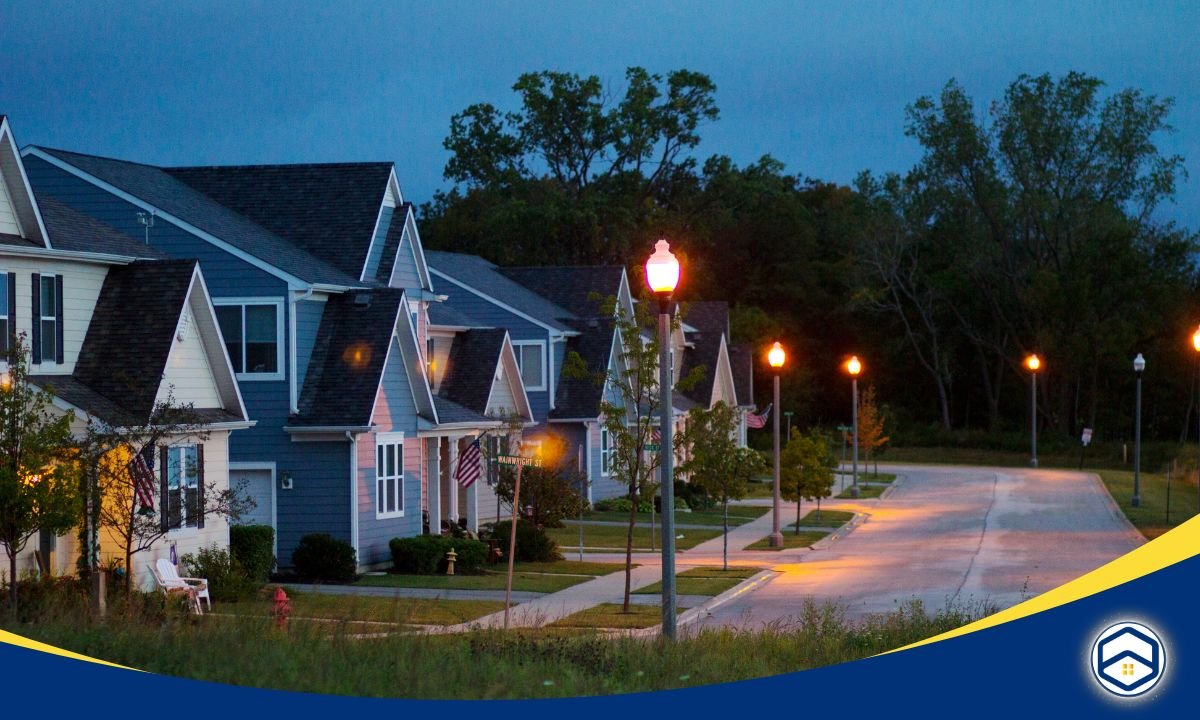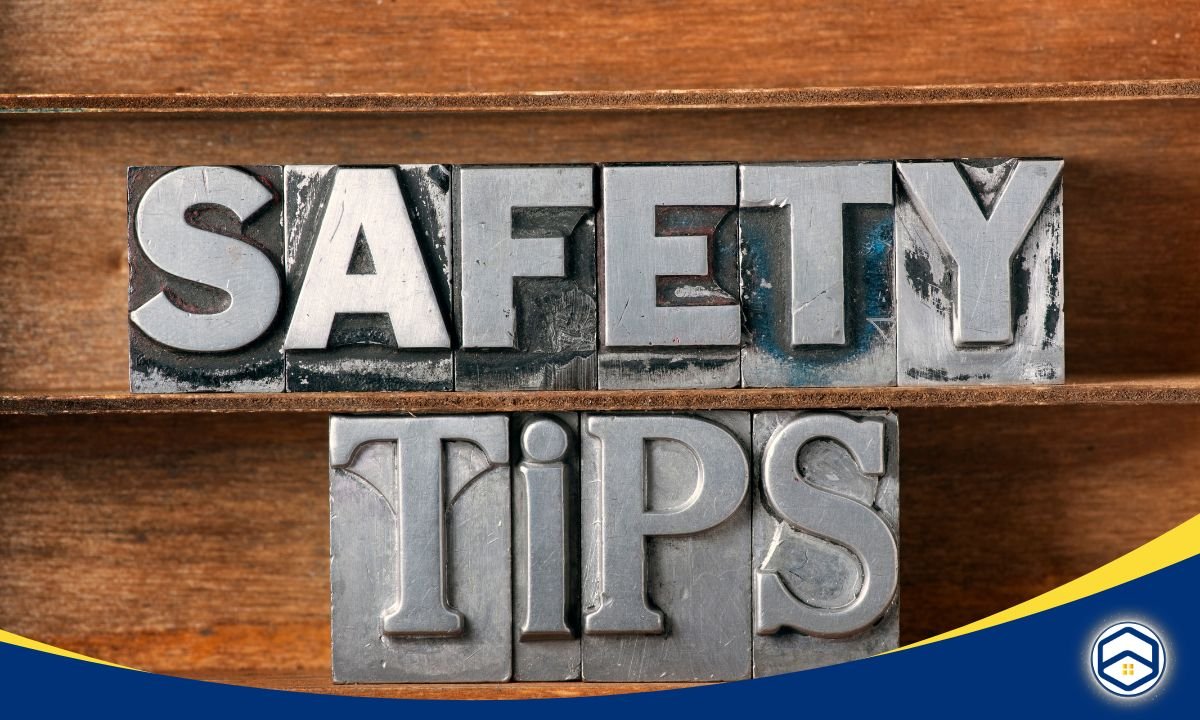As a renter, ensuring the safety of your home and neighborhood is crucial for your peace of mind and well-being. For those on a medium income, maintaining a secure living environment often requires balancing budget constraints with effective security measures. This article delves into comprehensive neighborhood safety tips specifically tailored for renters, providing a wealth of practical advice that can enhance your sense of safety and community.
Creating a secure living environment is not just about individual safety; it’s about building a cohesive community where everyone looks out for one another. By following these neighbor safety tips, you can contribute to a safer atmosphere for yourself and those around you. Let’s dive into essential strategies that can help you and your family feel secure in your home.
Understanding Neighborhood Safety
Before we explore specific safety tips, it’s essential to understand what neighborhood safety entails. A safe neighborhood is characterized by low crime rates, community involvement, and proper infrastructure. Here are some key elements to consider:
1. Local Crime Rates
Researching crime statistics in your area is the first step to understanding neighborhood safety. Websites like NeighborhoodScout or local police department sites provide valuable insights into the types and frequency of crimes. Familiarizing yourself with these statistics helps you identify potential risks and take preventive measures.
2. Community Engagement
A connected community is a safer community. When neighbors know each other, they are more likely to watch out for one another and report suspicious activities. Engaging in community events and building relationships can foster a sense of security.
3. Infrastructure Quality
Safe neighborhoods often have well-maintained streets, sidewalks, and public spaces. Poor lighting, overgrown vegetation, and neglected properties can create opportunities for crime. Advocating for infrastructure improvements is essential for enhancing neighborhood safety.
Essential Neighborhood Safety Tips for Renters
Now that we understand the components of neighborhood safety, let’s explore practical tips and strategies to help renters feel more secure in their surroundings.
1. Get to Know Your Neighbors
Building relationships with your neighbors is one of the most effective ways to enhance safety:
- Introduce Yourself: A simple greeting can lay the groundwork for a friendly relationship. Make an effort to meet those living near you.
- Participate in Local Events: Attend community meetings or social gatherings. Engaging with your neighbors helps build trust and fosters a supportive environment.
- Create a Neighborhood Watch: Collaborate with your neighbors to establish a neighborhood watch program. Regular meetings can inform everyone about local safety concerns and strengthen community ties.

2. Implement Basic Security Measures
For budget-conscious renters, there are several affordable security measures you can take:
- Secure Locks: Ensure that all doors and windows have sturdy locks. Consider installing deadbolts for added protection.
- Install Security Cameras: Affordable options like smart doorbell cameras can provide a sense of security without a hefty price tag. These devices alert you when someone approaches your home.
- Use Motion-Activated Lighting: Installing motion-activated lights around entrances can deter potential intruders. Consider using timers for indoor lights to simulate occupancy when you’re away.
3. Maintain Your Property
A well-maintained property signals that residents care about their space, which can deter crime:
- Trim Vegetation: Keep bushes and trees around your home trimmed to eliminate hiding spots for potential intruders.
- Regular Inspections: Check doors and windows for any signs of wear or damage. Promptly repair broken locks or hinges.
- Keep Common Areas Clean: If you live in a building with shared spaces, ensure these areas are tidy. A clean environment fosters community pride and vigilance.
4. Stay Aware of Your Surroundings
Awareness is crucial for personal safety. Here’s how to enhance your situational awareness:
- Limit Distractions: When walking in your neighborhood, avoid being glued to your phone. Stay alert to your surroundings.
- Trust Your Instincts: If something feels off, don’t hesitate to remove yourself from the situation. Your instincts can be a valuable guide.
- Report Suspicious Activity: If you notice anything unusual, report it to local authorities. Prompt reporting can help prevent crime.
5. Utilize Local Resources
Take advantage of local resources to improve safety in your neighborhood:
- Community Meetings: Attend town hall meetings to voice your concerns and stay informed about local safety initiatives.
- Join Online Groups: Participate in community forums or social media groups focused on neighborhood safety. Sharing information with neighbors can keep everyone informed.
- Subscribe to Crime Alerts: Sign up for local crime alert systems that notify you about incidents in your area. This information can help you stay vigilant.
6. Practice Safe Living Habits
Adopting safe living habits is essential for maintaining your security:
- Lock Doors and Windows: Always secure your doors and windows, even when you’re at home. This habit can deter opportunistic thieves.
- Be Cautious with Deliveries: If you regularly receive packages, consider using secure delivery options or have them sent to a trusted location.
- Consider a Security System: If your budget allows, invest in a home security system. Many companies offer affordable plans tailored for renters.
Building a Strong Community
A supportive community plays a vital role in enhancing safety. Here’s how to build connections:
1. Organize Community Events
- Host Block Parties: Organize neighborhood block parties to encourage residents to socialize. This creates opportunities to discuss safety concerns and strengthen community bonds.
- Plan Clean-Up Days: Organize community clean-up events to improve your neighborhood’s appearance. This promotes pride in the area and encourages residents to take ownership of their surroundings.
2. Share Information and Resources
- Create a Community Bulletin Board: Set up a bulletin board in a shared space to post safety tips, local events, and community resources.
- Share Emergency Contacts: Distribute a list of emergency contacts, including local law enforcement, fire department, and community resources.

3. Engage with Local Authorities
- Build Relationships with Local Law Enforcement: Attend community policing events or forums to connect with law enforcement. Building relationships with officers can create trust and encourage open communication regarding safety concerns.
Emergency Preparedness
Being prepared for emergencies can enhance safety in your neighborhood. Here are some tips to consider:
1. Create an Emergency Plan
- Plan for Various Scenarios: Develop a plan for different emergencies, such as natural disasters or home invasions. Ensure everyone in your household knows the plan.
- Identify Safe Locations: Designate safe meeting points for your family in case of an emergency. Ensure everyone knows where to go.
2. Have Emergency Supplies Ready
- Prepare an Emergency Kit: Assemble a kit with essential items like water, non-perishable food, first-aid supplies, flashlights, and important documents.
- Stay Informed: Sign up for local emergency alerts to receive updates about severe weather, safety warnings, and other critical information.
3. Educate Yourself and Your Family
- Safety Workshops: Attend local safety workshops or classes to learn about self-defense, first aid, and emergency preparedness.
- Involve Your Kids: Teach your children about safety and preparedness. Ensure they know how to contact you and emergency services.

Conclusion
Neighborhood safety is a shared responsibility, and as a renter, you can play an active role in creating a secure living environment. By implementing these neighborhood safety tips and engaging with your community, you can foster a sense of security for yourself and your neighbors. Remember, small actions can lead to significant improvements in safety. Stay proactive, stay connected, and enjoy peace of mind in your home and neighborhood. With these strategies, you can cultivate a supportive, safe community that enhances the quality of life for everyone involved.










